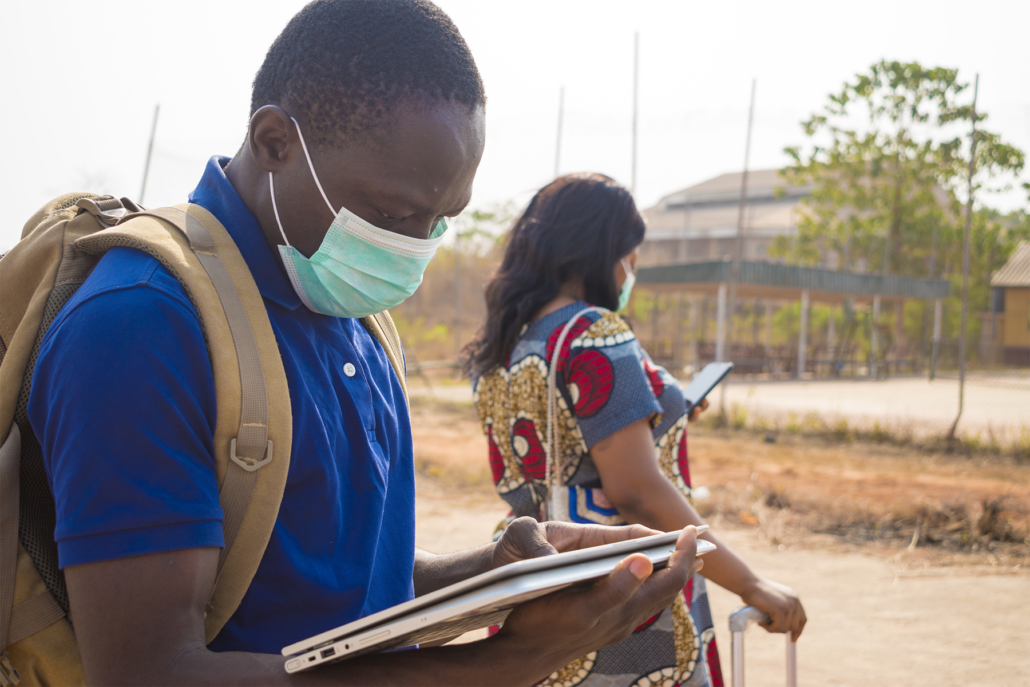The Johns Hopkins Center for Communication Programs has launched the COVID-19 Communication Network (CCN), a new website dedicated to curating essential, evidence-based tools and materials on the current pandemic for social and behavior change communication practitioners.
The one-stop shop will include the latest guidance, reports, training curricula, media materials and more from Johns Hopkins, the World Health Organization and the U.S. Centers for Disease Control and Prevention – as well as from partners on the ground around the world working to prevent and mitigate the spread of COVID-19.
“None of us has enough time to sift through all of the material coming out about COVID-19 given the sheer volume of it,” says CCP’s Lynn Van Lith, one of the leaders of the effort. “The COVID-19 Communication Network puts the best information in one place. We need trusted sources during this time and it’s too overwhelming to synthesize it on your own. The benefit here is that you have a whole team of experts behind it who have taken the time to vet and provide what people need.”
There have been more than 2.5 million confirmed cases of COVID-19 around the world including more than 171,000 deaths since the pandemic began.
The reason that CCP has been able to pull together vast quantities of high-quality information about the new coronavirus in such a short time is its experience in creating the Ebola Communication Network and the Zika Communication during previous health crises, also with the support of USAID, says CCP’s Marla Shaivitz, who led the technical work to build all three sites. These sites functioned similarly to the CCN, in giving those public health professionals who are crafting health messages in time-sensitive situations, direct access to high quality materials.
Without a vaccine or reliable treatments in place, the best way to fight the virus is for people to adopt healthy behaviors in order to prevent illness, from frequent proper handwashing to maintaining a distance of six feet from others to wearing face masks in public.
The resources are also meant to support and guide clear and engaging communication about COVID-19 care and support; reduce stigma against those infected and those being blamed for infecting; track and address rumors; bust myths and misconceptions and access promising approaches from around the world.
Practitioners in the field will not only be able to freely use what they find on the CCN – which will include resources in a variety of languages from many countries – but they will be able to submit their own materials to be reviewed for the collection. Content on the site will be updated daily and out-of-date information will be taken down.
“We want to make getting the tools people need as seamless as possible and, with time of the essence, we don’t want people to have to start from scratch,” says CCP’s Uttara Bharath Kumar, another of the CCN’s leaders. “It’s literally affecting every country. It’s not going away anytime soon.”





